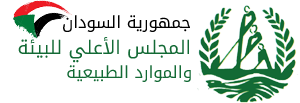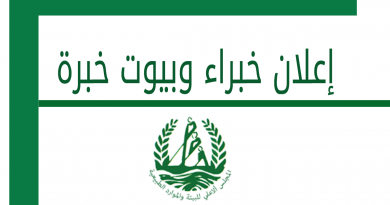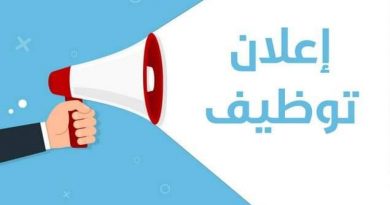Invitation for Tender on Provision of Goods and Services
The Higher Council for Environment and Natural Resources (HCENR)
Building resilience in the face of climate change within traditional rain fed agricultural and pastoral systems in Sudan (GCF-BRCC)
Invitation for Tender on Provision of Goods and Services
Bid Number: GCF_BRCC/1/2021
The Higher Council for Environment and Natural Resources (HCENR) has received a grant from the GCF through UNDP to implement a Project titled: Building resilience in the face of climate change within traditional rain fed agricultural and pastoral systems in Sudan. The implementation will cover nine States of Sudan, namely West Darfur, Central Darfur, East Darfur, West Kordofan, South Kordofan, Read Sea, Kassala, Northern and Khartoum. The project addresses three major strategic elements as follows:
- Resilience of food production systems and food insecure communities improved in the face of climate change in Sudan, benefiting at least 200,000 households and farmers and pastoralists with 35% women.
- Improved access of water for human, livestock and irrigation to sustain livelihoods in the face of climatic risks in the nine targeted states benefiting at least 200,000 households.
- Strengthened capacities and knowledge of institutions and communities on climate change resilience and adaptation.
The national Executing Entity for this project is the Higher Council for Environment and Natural Resources (HCENR). Day-to-day project oversight will be conducted in accordance with established HCENR and UNDP procedures. The project is implemented in close collaboration with the Ministry of Agriculture and Forestry, the Ministry of Water Resources and other relevant institutions.
As part of the implementation plans of the project, HCENR invites eligible and professional Sudanese firms, to participate in this tender on provision of goods and services.
- Scope of Work and Responsibilities:
The project supports climate change adaptation efforts among subsistence agro-pastoralist and nomadic pastoralist communities in dryland zones across nine states in Sudan. Its overall goal is to promote a paradigm shift in dryland pastoral and farming systems through an integrated approach by increasing resilience of food production systems; improving availability/access to climate resilient water sources; and strengthening capacities of institutions/communities on climate resilience. The contracted firm will study the project document with special focus on output 1: Resilience of food production systems and food insecure communities improved in the face of climate change in Sudan, benefiting at least 200,000 households and farmer and pastoralist with 35% women; and Output3: Strengthened capacities and knowledge of institutions and communities on climate change resilience and adaptation. The contracted firm is expected to undertake and carry out the following tasks:
- Develop a manual and technical guidelines to strengthen technical capacities of communities in climate-resilient activities.
- Produce a video to educate the communities about the benefits of micro finance and the ways to access Micro Finance Institutions (MFIs).
- Collection and publication of the best practices in Sudan in adaptation to climate change especially in the areas of agriculture, water management, rangeland and pastoralists systems.
- Conduct a TOT training session on micro finance as related to adaptation to climate change in the agricultural and water sectors. The training duration is between 3 to 5 days in Khartoum, the participants will include the project state managers (9) and 2 extension agents from each states (18). The cost of the training should include the travel of the participants from the other states and their living allowances.
- Undertake a desk review and analysis on the current micro-finance schemes in the 9 states to identify gaps and barriers that prevents farmers and pastoralists from accessing micro finance. Questionnaires on this matter can be developed and shared with the 9 state coordinators to fill them in and send them for further analysis.
- Propose a methodology for the integration of the micro-finance in the seasonal farming planning.
- Deliverables:
- A Manual and technical guidelines in Arabic to strengthen technical capacities of communities in climate-resilient activities.
- Produce a video (15 to 20 minutes) to educate the communities about the benefits of micro finance and the ways to access Micro Finance Institutions (MFIs). The video should contain some examples of communities who have successfully accessed and benefited from micro finance.
- Producing 100 copies of the best practices in Sudan in adaptation to climate change especially in the areas of agriculture, water management, and rangeland and pastoralists systems.
- TOT training report on micro finance as related to adaptation to climate change in the agricultural and water sectors (30 participants).
- A Report on the current micro-finance schemes in the 9 states identifying gaps and barriers that prevents farmers and pastoralists from accessing micro finance.
- A Methodology for the integration of the micro-finance in the seasonal farming planning.
(C) How to apply:
- Letter of interest
- Firm profile indicating relevant experiences
- Subject matter experts’ CVs (at least 3 experts)
- Detailed Technical and Financial proposals including scope of work and time schedules.
All submitted documents for application should be in English addressed to the Higher Council for Environment and Natural Resources, Elmak Nimir street, Khartoum, Sudan or by Email: hcenr2005@yahoo.com; Cc: imadaa@gmail.com
For further inquiries, Tel: 0917232979 and 0113242710


